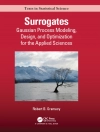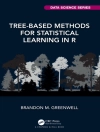Achieving a better solution or improving the performance of existing system design is an ongoing process for which scientists, engineers, mathematicians and researchers have been striving for many years. The purpose of this book is to describe the fundamentals, background and theoretical concepts of optimization principles in a comprehensive manner, along with their potential applications and implementation strategies. Focus is on case studies and real time applications as well as current research directions. Useful for a wide spectrum of target readers including students and researchers in academia and industry, discussion on linear programming is included, along with multi-variable methods for risk assessment, nonlinear methods, ant colony optimization, particle swarm optimization, multi-criterion and topology optimization, learning classifier, case studies on six sigma, performance measures and evaluation, multi-objective optimization problems, machine learning approaches, genetic algorithms and quality of service optimizations.
Mục lục
Preface
Acknowledgement
Editor biography
List of contributors
1 Introduction and background of optimization theory
2 Linear programming
3 Multivariable optimization methods of risk assessment of business processes of manufacturing enterprises
4 Non-linear optimization methods – overview and future scope
5 Implementing travelling salesman problem using modified ant colony optimization algorithm
6 Application of particle swarm optimization technique in motor imagery classification problem
7 Multi-criterion and topology optimization using Lie symmetries for differential equations
8 Learning classifier systems
9 A case study on implementation of six sigma tools for process improvement
10 Performance evaluation and measures
11 Evolutionary techniques in design of PID controllers
12 A variational approach to substantial efficiency for linear multi-objective optimization problems with implications to market problems
13 Machine learning approach to engineering optimization tasks
14 Simulation of the process of being formed of spatial fine structures in environmental safety management systems and optimization of parameters of dispersive devices
15 Future Directions: Io T, robotics, and AI based applications
16 Efficacy of genetic algorithms for computationally intractable problems
17 A novel approach for Qo S optimization in 4G cellular networks
Giới thiệu về tác giả
Dr G R Sinha is working as Adjunct Professor at International Institute of Information Technology, Bangalore, currently deputed as Professor at Myanmar Institute of Information Technology, Mandalay. He obtained his B.E. and M.Tech. with Gold Medal from National Institute of Technology, Raipur and his Ph.D. in Electronics & Telecommunication Engineering from Chhattisgarh Swami Vivekanand Technical University, Bhilai. He has published over 200 research papers in various international and national journals and conferences, is an active reviewer and editorial member of numerous international journals and has authored or edited six books.












